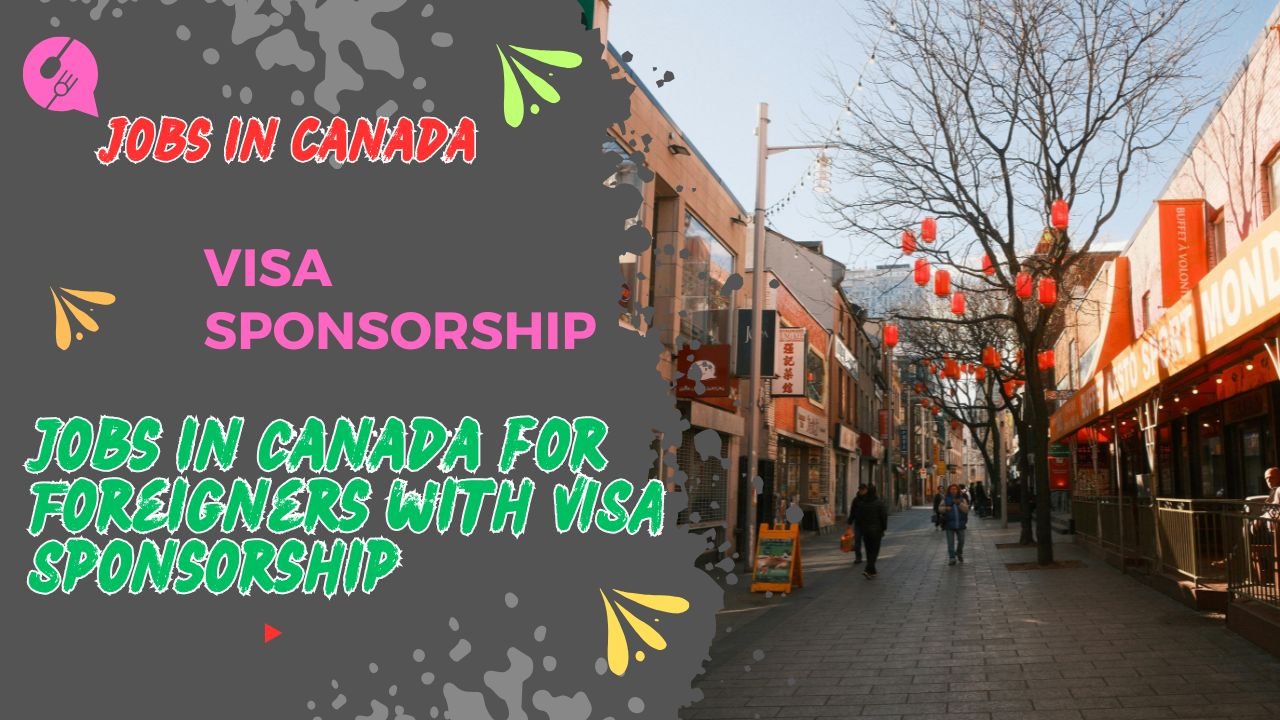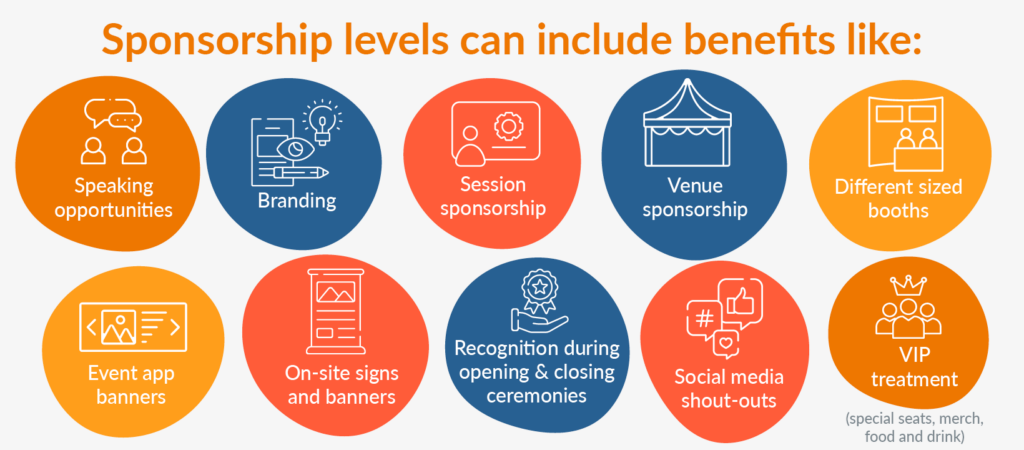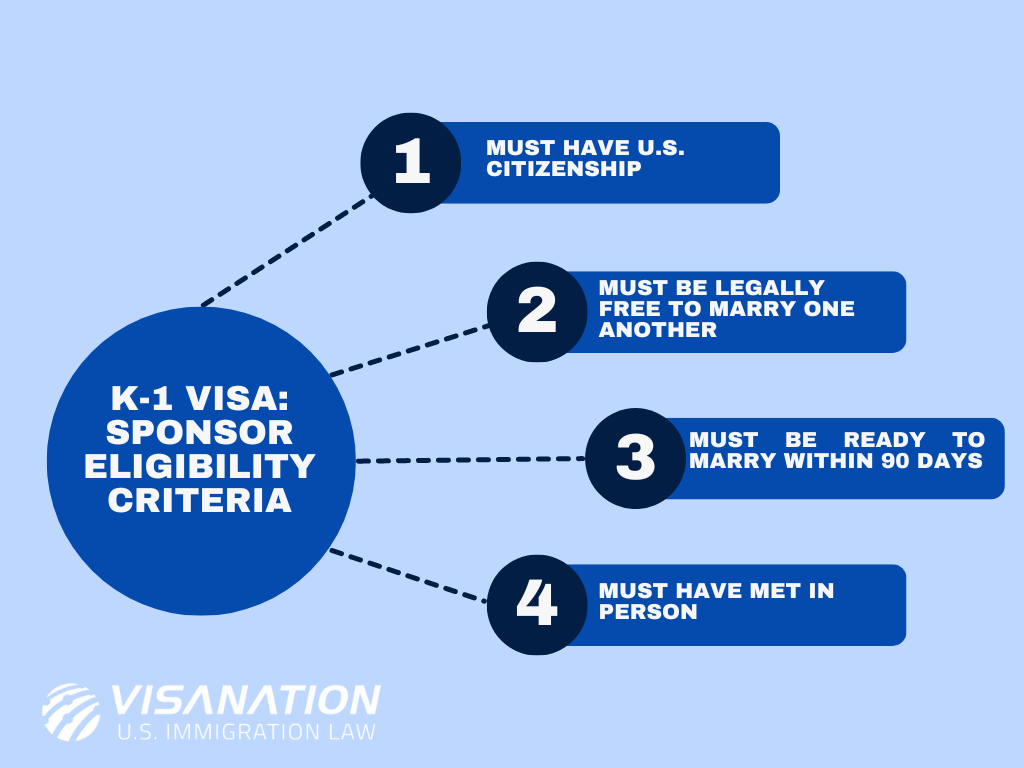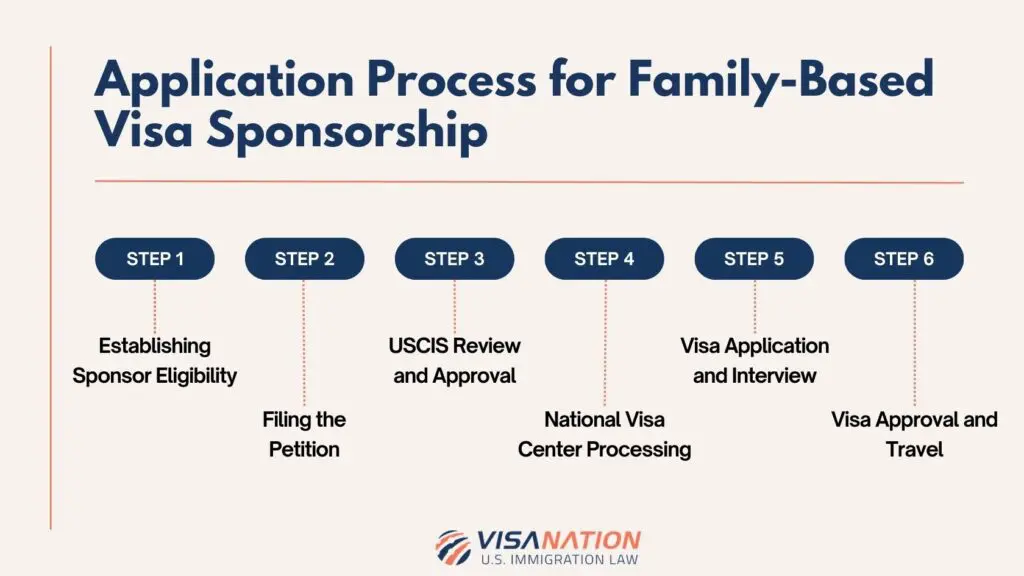Canada is a land of opportunity for many. Foreigners often seek jobs here that offer visa sponsorship.
This pathway allows individuals to work and live in Canada legally. Finding jobs in Canada with visa sponsorship can be challenging. Many companies seek skilled workers from around the world to fill gaps in their workforce. With a growing economy and a welcoming immigration policy, Canada offers numerous opportunities for foreigners.
Many industries, like technology, healthcare, and engineering, actively recruit international talent. Understanding the visa process and job market is key for success. This guide will explore various job options and how you can secure a position in Canada with visa sponsorship. Get ready to discover your future in this vibrant country!
You May Also Like:

VISA Sponsorship Types
Canada offers many job opportunities for foreigners. Visa sponsorship is a way for employers to help foreign workers come to Canada. There are different types of visa sponsorship. Understanding these types is important for finding a job in Canada.
Work Permits
Work permits allow foreigners to work in Canada for a specific time. Employers usually must apply for a work permit on behalf of the worker. There are two main types of work permits:
- Employer-Specific Work Permit: This permit allows a worker to work for a specific employer only.
- Open Work Permit: This permit lets workers work for any employer in Canada, except those who do not comply with labor laws.
To apply for a work permit, the employer often needs to provide:
- A positive Labour Market Impact Assessment (LMIA), showing the need for a foreign worker.
- A job offer letter outlining job details.
- Proof of the company’s ability to pay the worker.
Here is a simple table to explain the differences:
| Type of Work Permit | Details |
|---|---|
| Employer-Specific | Work for one employer only. |
| Open | Work for any employer. |
Work permits are often temporary. After a few years, workers may need to renew their permits or apply for permanent residency.
Permanent Residency
Permanent residency allows foreigners to live and work in Canada without restrictions. It is a significant step for many workers. There are several pathways to permanent residency:
- Express Entry: A fast system for skilled workers.
- Provincial Nominee Program (PNP): For workers nominated by a province.
- Family Sponsorship: For those with family members in Canada.
To apply for permanent residency, candidates often need:
- A valid job offer or work experience in Canada.
- Language test results to prove English or French skills.
- Medical and background checks.
Many foreigners aim for permanent residency to enjoy benefits like:
- Access to healthcare.
- The ability to apply for Canadian citizenship.
- Stability for family and future plans.
Permanent residency can open many doors for a successful career in Canada.
Popular Industries for Foreign Workers
Canada is a land of opportunity for foreign workers seeking jobs with visa sponsorship. Many industries are open to skilled individuals from around the world. These sectors actively seek talent to fill gaps in their workforce. Understanding the popular industries for foreign workers helps in targeting job searches effectively.
Technology
The technology sector in Canada is booming. Many companies need skilled workers to drive innovation. This industry offers a wide range of jobs, from software development to data analysis. Foreign workers are highly valued here. Some key roles include:
- Software Engineer
- Data Scientist
- Web Developer
- Cybersecurity Specialist
Canadian cities like Toronto, Vancouver, and Montreal are tech hubs. They host numerous startups and established firms. The demand for tech talent continues to grow. Companies often offer visa sponsorship to fill these roles. Foreign workers bring diverse skills and perspectives. This enriches the Canadian tech landscape.
| Job Title | Average Salary (CAD) | Skills Required |
|---|---|---|
| Software Engineer | 85,000 | Programming, Problem-Solving |
| Data Scientist | 95,000 | Statistics, Machine Learning |
| Web Developer | 70,000 | HTML, CSS, JavaScript |
| Cybersecurity Specialist | 90,000 | Network Security, Risk Management |
Healthcare
The healthcare industry in Canada is another area with high demand for foreign workers. Hospitals and clinics often struggle to find enough skilled professionals. This sector welcomes workers like:
- Nurses
- Doctors
- Pharmacists
- Medical Technologists
Many provinces offer programs to attract healthcare professionals. Visa sponsorship is common in this field. Foreign healthcare workers play a crucial role in patient care. They bring valuable experience and skills. This helps improve healthcare services across Canada.
| Job Title | Average Salary (CAD) | Skills Required |
|---|---|---|
| Nurse | 80,000 | Patient Care, Communication |
| Doctor | 150,000 | Diagnosis, Treatment Planning |
| Pharmacist | 90,000 | Medication Management, Counseling |
| Medical Technologist | 75,000 | Laboratory Skills, Attention to Detail |
Construction
The construction industry in Canada is essential for economic growth. There is a constant need for skilled labor. This sector offers various jobs, such as:
- Construction Managers
- Electricians
- Plumbers
- Carpenters
Foreign workers are often needed to fill these positions. Many construction companies provide visa sponsorship. Skilled labor from abroad helps meet project demands. The construction sector is known for its competitive wages. It also offers opportunities for career advancement.
| Job Title | Average Salary (CAD) | Skills Required |
|---|---|---|
| Construction Manager | 95,000 | Project Management, Leadership |
| Electrician | 80,000 | Electrical Systems, Problem-Solving |
| Plumber | 75,000 | Pipefitting, Code Compliance |
| Carpenter | 70,000 | Woodworking, Blueprint Reading |
Finding Job Opportunities
Finding a job in Canada as a foreigner can be challenging. Many employers offer visa sponsorship, making it easier to work legally. Knowing where to search for job opportunities is essential. This section will help you explore effective ways to find jobs in Canada.
Job Portals
Job portals are excellent tools for job seekers. They list various job openings across different industries. Many companies in Canada use these portals to find suitable candidates. Here are some popular job portals:
- Indeed – A widely used job search engine.
- Monster – Offers job listings and career advice.
- LinkedIn – A professional networking site with job opportunities.
- Workopolis – Focuses on Canadian job listings.
- Job Bank – A government-run site for job seekers.
Using these portals is straightforward. You can search by job title, location, or company. Many portals allow you to set up alerts for new job listings. This feature helps you find opportunities quickly. Here’s a quick guide on using job portals:
| Step | Action |
|---|---|
| 1 | Create a profile on the job portal. |
| 2 | Upload your resume. |
| 3 | Use keywords related to your job search. |
| 4 | Apply for jobs that match your skills. |
Be sure to tailor your resume for each job. Highlight your skills and experience that match the job description. This practice will increase your chances of getting interviews.
Networking
Networking is a powerful way to find job opportunities. Building connections can open doors to many jobs. It helps you learn about unadvertised job openings. Here are some effective networking strategies:
- Join professional groups – Look for groups related to your field.
- Attend job fairs – Meet employers in person.
- Use social media – Connect with professionals on platforms like LinkedIn.
- Ask for referrals – Reach out to friends or family in Canada.
Networking events often provide valuable information. They allow you to meet potential employers and other job seekers. Here’s how to make the most out of networking:
- Prepare a short introduction about yourself.
- Be friendly and approachable.
- Follow up with contacts after the event.
Remember, networking is not just about asking for jobs. It’s about building relationships. Be genuine and interested in others. This approach will help you grow your network and discover more job opportunities.
Resume and Cover Letter Tips
Jobs in Canada offer many opportunities for foreigners. Many companies provide visa sponsorship. A strong resume and cover letter can help you stand out. They show your skills and fit for the job. Here are some tips to create effective applications.
Tailoring Applications
Each job is unique. Your resume and cover letter must match the job description. This process is called tailoring. Here are steps to tailor your applications:
- Read the Job Posting: Understand the requirements and responsibilities.
- Use Keywords: Include important terms from the job ad in your documents.
- Focus on Relevant Experience: Highlight past jobs that relate to the position.
- Customize Your Objective: Write a personal statement that reflects your goals.
Consider creating a table to compare your skills to the job requirements:
| Job Requirement | Your Skill |
|---|---|
| Communication Skills | Public Speaking |
| Team Collaboration | Project Management |
| Technical Knowledge | Software Proficiency |
This table shows how your skills meet the job’s needs. Tailoring helps you appear as the best candidate.
Highlighting Skills
Your skills are your strongest asset. They show employers what you can do. Focus on both hard and soft skills. Here are tips to highlight your skills:
- Use Action Words: Start each bullet point with a strong verb.
- Provide Examples: Show how you used your skills in past jobs.
- Include Certifications: List any relevant courses or certifications.
Here are some skills to consider:
- Technical Skills: Software, coding, or data analysis.
- Language Skills: English, French, or other languages.
- Interpersonal Skills: Teamwork, communication, or leadership.
By highlighting your skills clearly, you make a strong case for your candidacy. Use specific examples to showcase your abilities.
Interview Preparation
Finding a job in Canada as a foreigner can be exciting yet challenging. Many employers offer visa sponsorship to help skilled workers relocate. Interview preparation is crucial in this process. It helps you present your best self to potential employers. Understanding common interview questions and cultural differences can boost your confidence. This guide will help you prepare effectively.
Common Questions
During interviews in Canada, you may face several standard questions. Employers want to know about your skills and how you fit into their team. Here are some common questions you might encounter:
- Tell me about yourself.
- Why do you want to work here?
- What are your strengths and weaknesses?
- Describe a challenge you faced and how you handled it.
- Where do you see yourself in five years?
Prepare your answers in advance. Use the STAR method to structure responses:
| STAR Method | Description |
|---|---|
| S | Situation: Describe the situation you faced. |
| T | Task: Explain your task in that situation. |
| A | Action: Detail the action you took. |
| R | Result: Share the result of your action. |
Practice your responses out loud. This will help you sound more natural during the interview. Remember to keep your answers clear and concise.
You May Also Like:
Cultural Differences
Understanding cultural differences is essential for job interviews in Canada. Canadian workplaces value respect, politeness, and teamwork. Here are some key points to consider:
- Be punctual. Arrive on time for your interview.
- Use a firm handshake. This shows confidence.
- Maintain eye contact. It shows you are engaged.
- Be polite. Use “please” and “thank you” often.
Canadians appreciate direct communication. Speak clearly and avoid jargon. It is okay to pause and think before answering. This shows you are considering your response.
Different cultures have various views on personal space. In Canada, keep a reasonable distance during conversations. Respect personal boundaries to make a good impression.
Understanding these cultural norms can help you feel more comfortable. You will show respect for Canadian work culture. This will increase your chances of success in the interview.
Settling in Canada
Settling in Canada brings many opportunities for foreigners. Canada welcomes skilled workers through various visa sponsorship programs. This allows newcomers to build their careers in a diverse and thriving economy. Adjusting to life in Canada involves understanding the cost of living and cultural integration.
Cost of Living
The cost of living in Canada varies by city. Major cities like Toronto and Vancouver are more expensive. Other cities, like Calgary and Winnipeg, offer lower costs. Here is a general overview of living expenses:
| City | Average Monthly Rent (1-Bedroom) | Average Grocery Cost (Monthly) | Transportation (Monthly Pass) |
|---|---|---|---|
| Toronto | $2,300 | $400 | $156 |
| Vancouver | $2,200 | $350 | $100 |
| Calgary | $1,500 | $300 | $109 |
| Winnipeg | $1,200 | $280 | $100 |
Basic living expenses include:
- Housing: Rent varies by location.
- Utilities: Around $150 to $250 monthly.
- Food: Groceries can cost between $250 and $600 monthly.
- Healthcare: Public healthcare is available, but private insurance may be needed.
Planning your budget is crucial. Research different cities to find the best fit for your lifestyle.
Cultural Integration
Adjusting to a new culture can be challenging. Canada is known for its multicultural environment. Embracing this diversity helps with cultural integration.
Here are some tips for adapting:
- Learn English or French: Language skills help with communication.
- Join community groups: Meet locals and other immigrants.
- Participate in local events: Festivals and gatherings promote understanding.
- Explore Canadian customs: Understanding traditions fosters connection.
Consider these resources:
- Language classes: Many cities offer free or low-cost options.
- Cultural centers: They provide information and support.
- Volunteer opportunities: Gain experience and meet people.
Cultural integration takes time and patience. Engage with your community, and be open to new experiences. This will help you feel at home in Canada.
Success Stories
Many foreigners dream of working in Canada. Visa sponsorship makes this possible. Success stories show how people achieved their goals. These stories inspire others to pursue jobs in Canada. They highlight opportunities and growth. Let’s explore some of these success stories.
Personal Experiences
Many foreigners have found success in Canada. They share their journeys, showcasing the challenges and victories. Here are some real-life stories:
- Maria from Brazil: She moved to Canada for a job in nursing. Maria faced many challenges but received support from her employer. Today, she leads a team in a major hospital.
- Anil from India: Anil worked in IT. He found a company that sponsored his visa. After two years, he was promoted to a senior position. His hard work paid off.
- Fatima from Egypt: Fatima loved baking. She opened her own bakery in Toronto after getting a visa. Now, her bakery is popular, and she employs several staff.
These stories show that with determination, success is possible. Each person faced unique challenges but overcame them through hard work and support.
Career Growth
Working in Canada offers excellent career growth. Many companies value skills and experience. They provide training and mentorship. This helps newcomers develop their careers. Here are some key benefits:
| Benefit | Description |
|---|---|
| Skill Development | Workshops and training programs enhance skills. |
| Networking | Meet professionals in the industry for opportunities. |
| Career Advancement | Promotions are common for dedicated employees. |
Many foreigners report great career satisfaction. They appreciate the supportive work culture in Canada. This leads to long-term success and fulfillment. With the right mindset and effort, career growth is within reach.
Conclusion
Finding jobs in Canada with visa sponsorship is possible. Many companies welcome foreign workers. Research industries that need help. Tailor your resume to match job descriptions. Networking can open doors to opportunities. Explore online job boards and company websites. Stay persistent and positive during your search.
With determination, you can build a successful career in Canada. Embrace the chance to grow both personally and professionally. Your new journey awaits.



